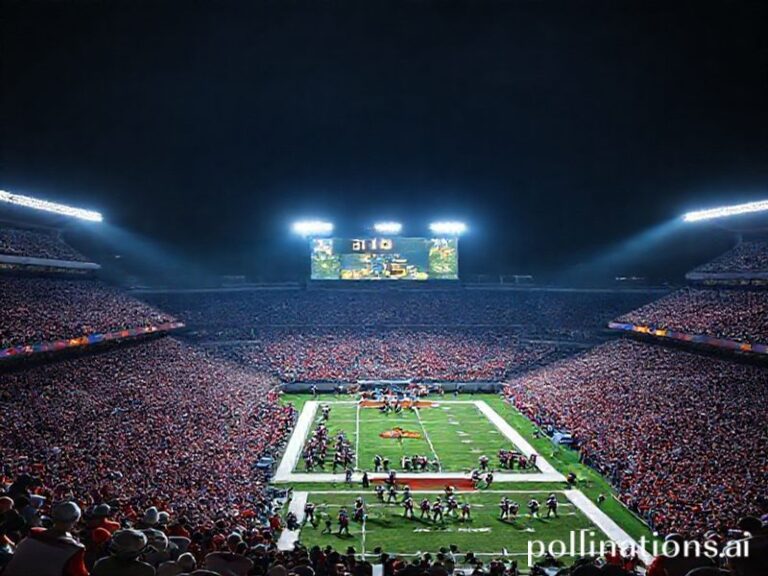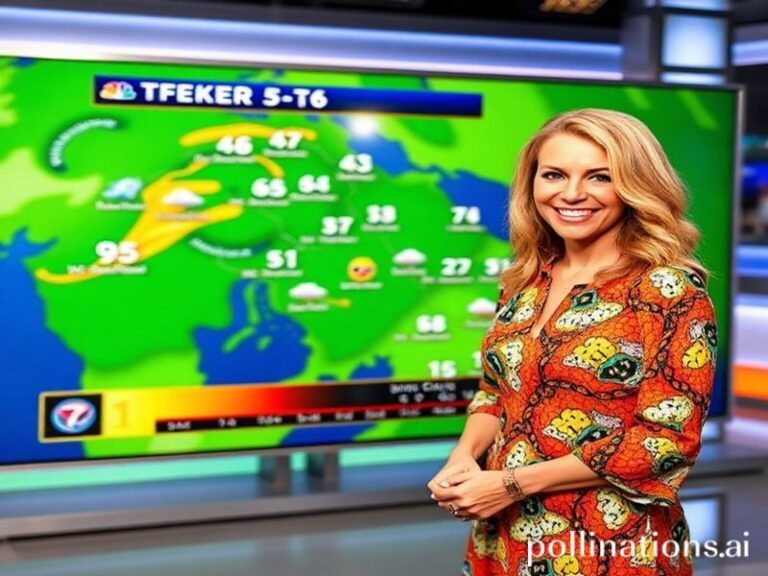Mets Game Today: A Global Trade War in Nine Innings
Flushing, Queens—population 2.4 million if you count the pigeons—plays host today to a modest nine-inning affair between the New York Mets and whoever fate has lined up to be sacrificial. On the surface it’s merely “Mets game today,” three words that sound as routine as a Tokyo salaryman bowing to the 6:02 a.m. Chuo Line. But beneath the veneer of peanuts, Cracker Jack, and concession-stand inflation that would make a Swiss banker blush, today’s tilt is a geopolitical Rorschach test smeared across 108 stitches of cowhide.
First, the cast. The Mets—those lovable chronic underachievers—carry the existential weight of a city that once sold the world on Big Apple optimism and now sells it on NFT subway rats. Across the diamond, the opposing nine (in this case the suddenly competent Pittsburgh Pirates) arrive like a delegation from a rust-belt micro-nation seeking IMF relief: hopeful, underfunded, and painfully aware that their bullpen is one strained UCL away from currency devaluation.
Consider the international supply chain that makes this pastoral pageant possible. The ash bats hail from forests in upstate New York, felled by Canadian lumberjacks earning loonies while humming Drake. The gloves are stitched in a Ho Chi Minh City sweatshop whose night-shift supervisor dreams, ironically, of seeing a game at Citi Field on vacation—if only the visa gods weren’t so stingy. The streaming feed, meanwhile, is bounced off satellites built by Elon Musk’s merry pranksters, allowing an insomniac in Lagos to watch Pete Alonso strike out on a 95-mph cutter at 2:13 a.m. local time. Globalization has never looked so beautifully pointless.
Then there’s the betting line, a digital colonoscopy of odds pushed by shadowy algorithms domiciled in Malta and regulated, theoretically, by the ghost of Adam Smith. The vig alone could underwrite a small Balkan military parade. From Manila to Manchester, gamblers who can’t find Queens on a subway map are sweating Francisco Lindor’s hamstring like it’s a NATO Article 5 trigger.
National security implications? Laugh if you like, but the Department of Homeland Security still classifies MLB stadiums as Level II critical infrastructure, right between petrochemical plants and that one Shake Shack on the Jersey Turnpike. Any drone buzzing over center field prompts fighter-jet chatter that would make the Baltic states nervous. And let’s not forget the ceremonial first pitch, tossed today by the United Nations Deputy Secretary-General, who practiced for fifteen minutes in a Midtown hotel suite and still managed to skip the ball to home plate like a stone across Lake Geneva. Diplomatic immunity covers many sins, but it cannot fix mechanics.
Meanwhile, the crowd itself is a microcosm of late-stage capitalism’s greatest hits: crypto bros in section 126 comparing NFT seat upgrades; a German tourist who flew in just to watch “baseball opera” and Googles “What is a balk?” between innings; and a septuagenarian season-ticket holder still angry about the 1973 World Series, a grudge now legally old enough to collect Social Security.
And yet, for all the absurdity, there is something reassuring—almost quaint—in watching humans fail gloriously in real time. The planet’s glaciers calve, bond markets convulse, and TikTok dances mutate faster than COVID sub-variants, but here in Queens the most pressing crisis is whether the Mets’ closer can find the strike zone before the 7-train rumbles overhead like an iron dragon with asthma.
Final score? Irrelevant. By the ninth inning, the international audience has already moved on: the Lagos viewer has dozed off; the Maltese algorithm has hedged its exposure; the Vietnamese glove-stitcher clocks in for overtime. The Mets may win, or they may invent a new way to lose—either outcome will be uploaded, memed, monetized, and forgotten before the earth completes another rotation.
But somewhere in the stands a kid from Santo Domingo catches a foul ball and, for one fleeting moment, believes the universe is rigged in his favor. That delusion, dear reader, is the only export America still produces in surplus. Play ball.







